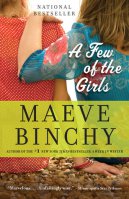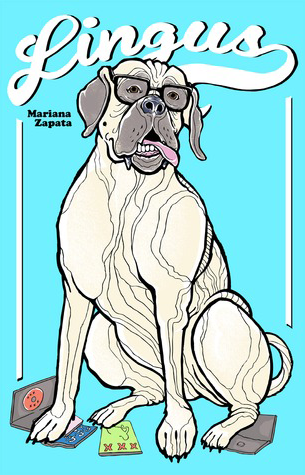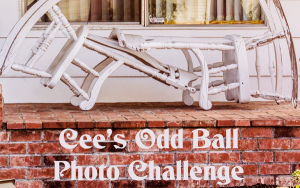Rana, a wife and mother in 1970s Iran, struggles with keeping her life and marriage together. She has two beautiful daughters but all her husband wants is a son, and when their third child is yet another girl, Rana knows everything will change forever.

Note: This review contains some spoilers for The Moon Daughter.
I won’t reveal everything so there’ll be surprises for you to enjoy along the way in case you want to read the book, but to keep spoilers to an absolute minimum, you should skip down to Overall.
The first half of the book focuses on Rana’s life in Iran and begins as she’s pregnant with her third child. She’s convinced it’ll be a boy and that’s her husband’s hope too — yet Rana hasn’t seen much of Major Moradi lately. The rumor is all over town that the Major has been seeing another woman. When the baby is born, it’s a third girl for the family — named Yalda by her mother alone — and, what’s even worse, she has a deformed leg.
We follow Rana through her troubles of taking care of three daughters and keeping up appearances while she knows perfectly well where Major Moradi spends his nights. As things only seem to get worse, Rana and her father come up a with a plan that would give her her freedom. But the plan will cost her dearly and she’ll have to decide just how much she’s willing to sacrifice.
The second part of the book follows Yalda as a 24-year-old living in Chicago with Rana. Up until now she’s been under the illusion of living with a single mother who lost her husband in a car accident. She knows very little of her extended family back in Iran but then Rana gets a phone call.
Suddenly Yalda’s life tilts upside down. She has a sister? Her father’s alive? It all makes no sense but she agrees to go back to Iran with Rana to attend her sister’s wedding. Deep inside she only has the agenda of finally freeing her mother from Moradi’s grip but the journey will change both of their lives more than Yalda ever imagined.
∼Characters∼Rana: In the beginning of the book, Rana is a fairly timid woman who wants to appear as if nothing’s wrong. She knows about her husband’s nightly adventures but keeps it locked up for far longer than anyone expected. Denial is her weapon of choice until, with the help of her father, she decides to take matters into her own hands. Her children mean the world to her and she’s devoted to protecting newborn Yalda at any cost.
Rana is a conflicted character and that makes her so compelling. She has two daughters to love yet when Yalda is born, they form a connection she’s never had before. As the story moves forward, Rana learns to make her own decisions even if they have severe consequences.
In the second part of the book we’re viewing Rana through the eyes of Yalda but the change is evident. Rana has aged and the years of keeping her past a secret have taken a toll of her. She feels guilty for leaving a daughter behind and despite her earlier resentment toward Moradi’s “other woman” she eventually accepts that she hasn’t been there for her other daughter. She’s not her Maman, not truly, but she wants to make up for it.
Rana’s heart is all about family and that’s what drives her. Does she make decisions I wouldn’t? Yes. Do I still understand her reasons? Yes. We see her struggle, time and again, and keep hoping for her to succeed.
Yalda: The 24-year-old Yalda is an Americanized young adult who’s just graduated to become a lawyer. Her only connection to her Iranian relatives have been her grandfather and grandmother, so she’s naturally shocked to discover she has a sister and a father, too.
The second part of the book moves quite fast and I didn’t get as strong of an impression about Yalda that I did about Rana. Yalda seems strong and independent, good-natured and cares deeply for her mother, but I felt like we got to know her for too little. We barely see her in Chicago and then they’re already in Iran, surrounded by culture and relatives she’s never experienced. She finds several customs odd but mostly she’s at ease. I would’ve liked to see more conflict and troubles with her facing her mother’s past and heritage.
Yalda’s reaction to her father plays a huge part in her visit to Iran. She’s decided to hate the man for everything he’s put Rana through but there’s still that little girl inside her that hopes for a loving father. She tries to act cold and uninterested but can’t deny her curiosity. Her inner struggles and thoughts about her father are given much more attention but I still felt there could’ve been room for more.
∼Setting∼Iran is where practically everything happens. Yalda’s part of the book begins in Chicago but we only spend a moment there. We see Yalda with her boyfriend but she doesn’t tell him about the news about her mother’s hidden past, then she graduates, and then she’s off to Iran with Rana.
The book focuses heavily on characters and doesn’t do overly long descriptions of the surroundings, but still manages to make us imagine we’re right there.
∼Overall∼The Moon Daughter is a slow-paced book that aims for your guts. It’s about family and especially the relationship between a mother and a daughter, but there are many different emotions in there. The overall tone is more on the somber side but toward the end things get a bit brighter.
The characters are the driving force of the story and I especially cared about Rana. She’s an interesting protagonist and as I followed her struggles, I came to care for her. Her pain and grief poured out of the pages and felt genuine. The second part of the book would’ve deserved a bit more attention but it was still enjoyable and by the end I’d also grown to care about Yalda and could relate to her conflicts.
There were also characters I didn’t like but even they were well-written. Over the course of the story I learned to appreciate the happiness of all the different characters and could see the reasoning behind their decisions even when I didn’t agree with them.
There was also a message about actions and consequences that paired well with the emotional side of things. Sometimes you need to make hard choices to try and do the right thing, sometimes you realize you’ve made a terrible choice, and sometimes your choice can be a bit of both. Whatever has happened, you can’t change the past so it’s important to also learn to forgive — including forgiving yourself.
∗4/5∗ Advertisements Share this:




